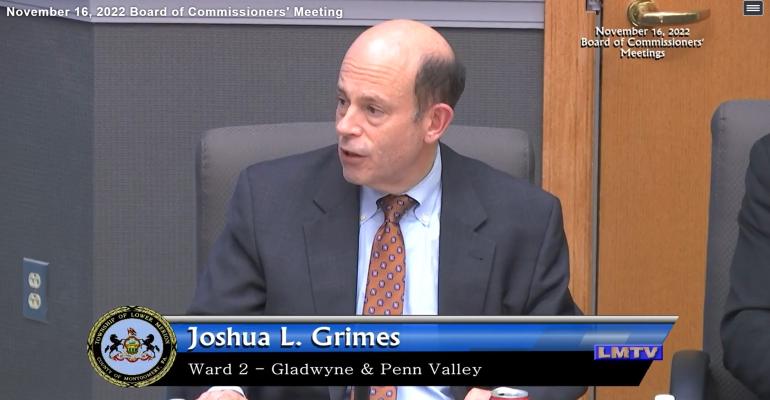Joshua Grimes, Esq.
Attorney at Law and President
Grimes Law Offices
For encouraging conversation and creating educational sessions on the latest legal issues—some of them controversial—that have an impact on meetings and events
Fun fact: Industry attorney Joshua Grimes, Esq., practically grew up in the travel industry. His father, Paul Grimes, originated and wrote the Practical Traveler column for The New York Times for more than a decade and later served as the founding news editor at Condé Nast Traveler magazine.
So, looking back on his legal career, Grimes sees a natural flow into business travel and meetings. It started just a few years after finishing law school when he went to work for Philadelphia’s newly elected mayor Ed Rendell and got involved in the legal work around opening the Pennsylvania Convention Center in 1993 and the renovations of the adjacent Reading Terminal.
In 1996, Grimes set up his own practice, originally working mostly with hotels. But his clientele has evolved; he now mainly represents corporations and associations that are navigating their way through the legal matters around meetings and events.
Over the years, Grimes has been tapped frequently to lead educational sessions at industry events. The first time was in 2001, when Meeting Professionals International held its Professional Education Conference in New Orleans. By his count, he’s presented well over 200 sessions over the past 20 years, including more than 100 at MPI events alone.
Grimes can deftly address the defining issues at the heart of event contracts—force majeure, attrition, cancellation clauses, and so on—but he’s drawn to what’s changing in the industry. His conference sessions and social media posts lean strongly toward topics that are new, evolving, and sometimes uncomfortable.
“I see my role as advocating for my clients on developing legal issues that are increasingly affecting meetings, and also educating the broader meetings industry on these topics,” he says.
“I try to get people thinking in ways that they might not otherwise. I started talking about risks associated with cannabis use a long time ago, educating [meeting professionals] that they need to think about it like alcohol in terms of risk management. I’ve been talking about firearms for years because the reality is that guns are permitted in many places, and meeting planners need to think about that more.
“More recently, I’ve been talking about issues of diversity, equity, and inclusion,” he says, noting that his session at the 2023 MPI World Education Congress, co-led with DEI event strategist Zoe Moore, was about making DEI initiatives legal obligations for meeting suppliers, as part of the contracting process.
Some of the other hot topics that Grimes has been quick to bring to the table include how increasingly restrictive abortion laws create duty-of-care issues for meetings in affected states; how planners can protect their organizations from an uptick in unilateral cancellations by hotels in the competitive post-pandemic market; and how detailed and enforceable requirements in a meeting contract can increase accessibility for all attendees. He also has an eye on what he sees as a growing acceptance by hotels of meeting groups with controversial attendees and content, and how planners must guard against those groups adversely impacting their own meetings.
“There’s always something new on the horizon, and a good planner or anyone in this industry needs to think about how to deal with [those emerging topics] to be more effective,” says Grimes. His educational sessions and social posts are helping planners to prepare for their newest challenges and revise their contracts and processes to adjust to new circumstances. “I think people who are successful are the ones who adapt instead of just waiting for someone to tell them what to do.”





